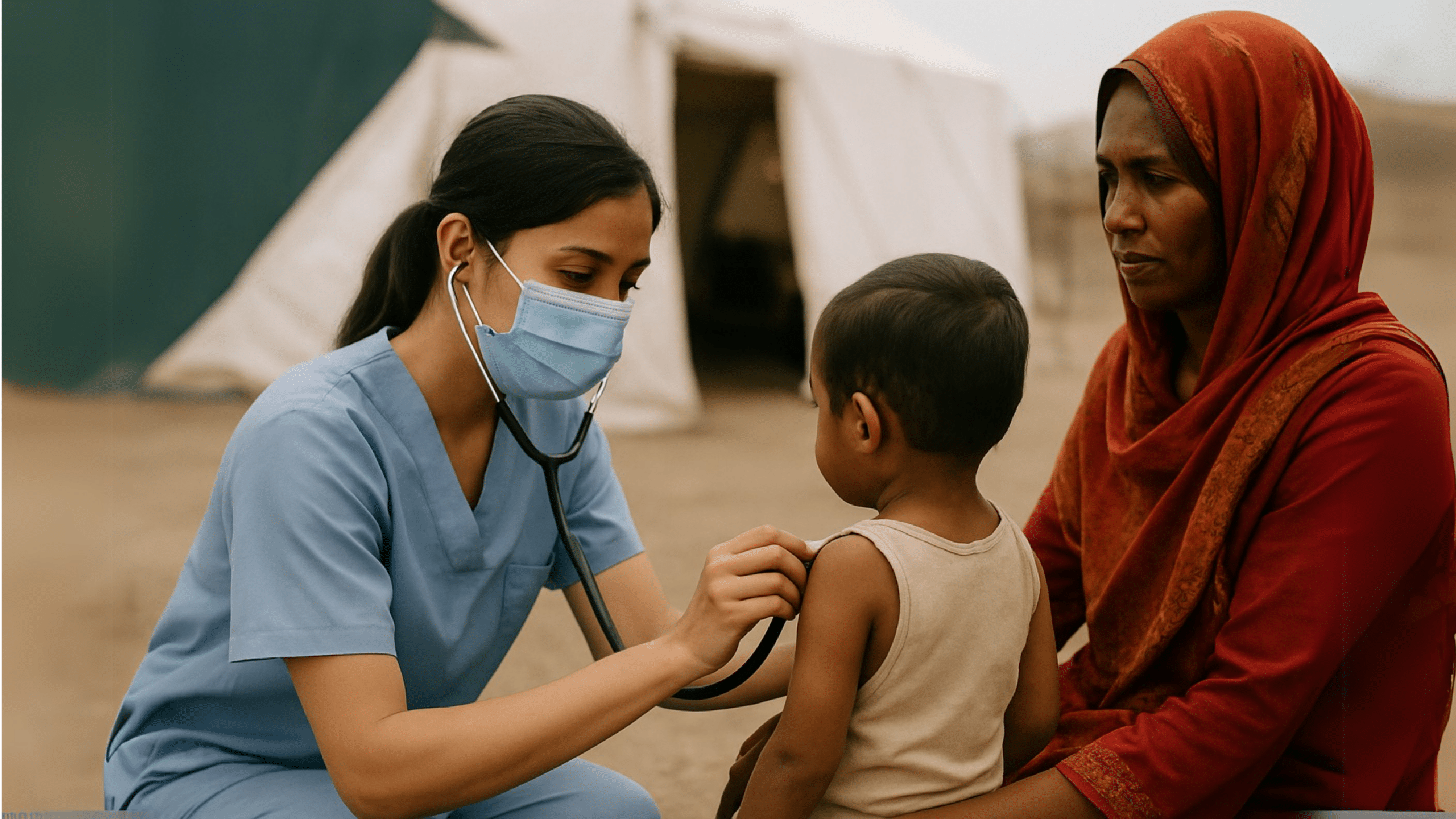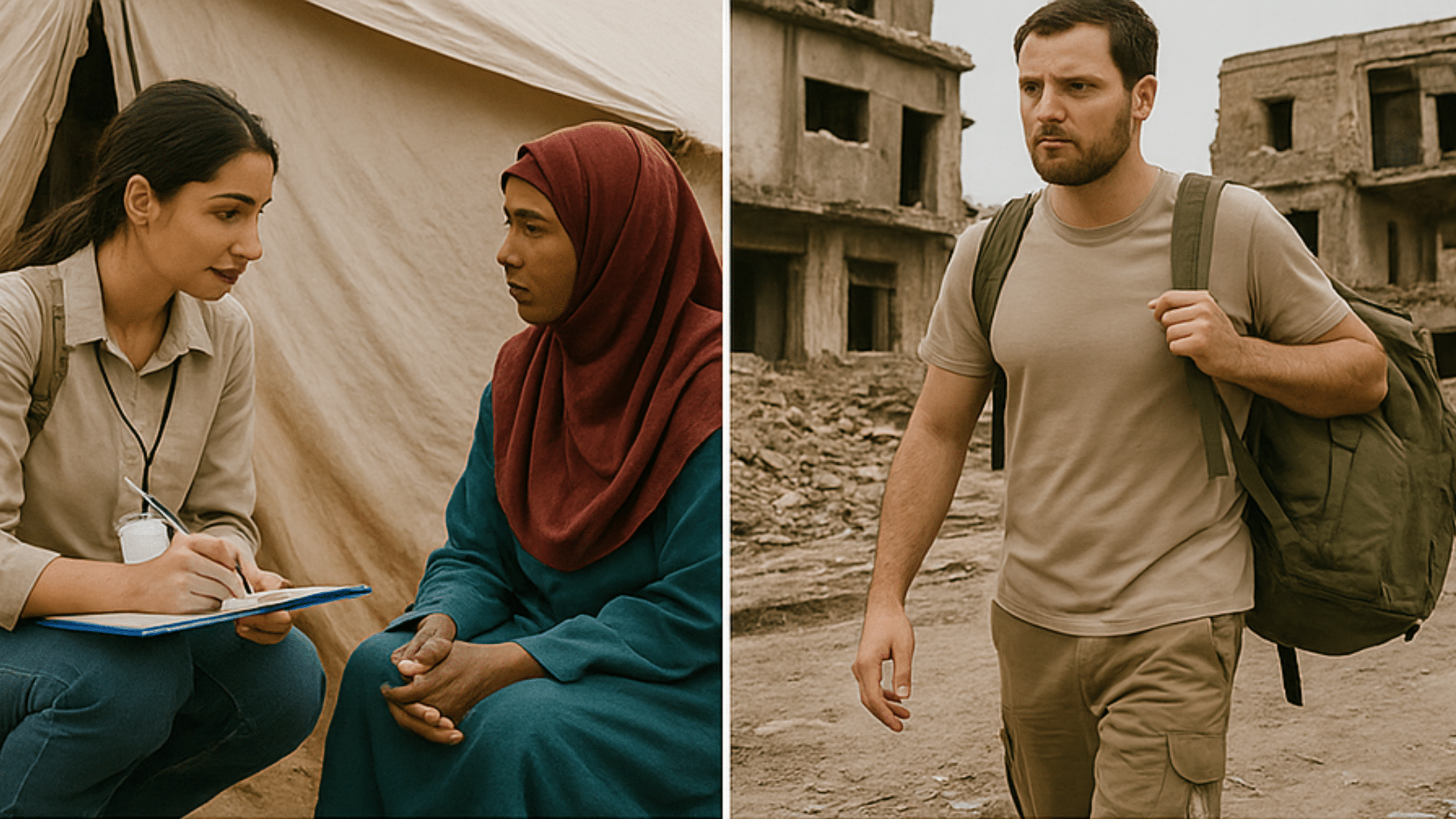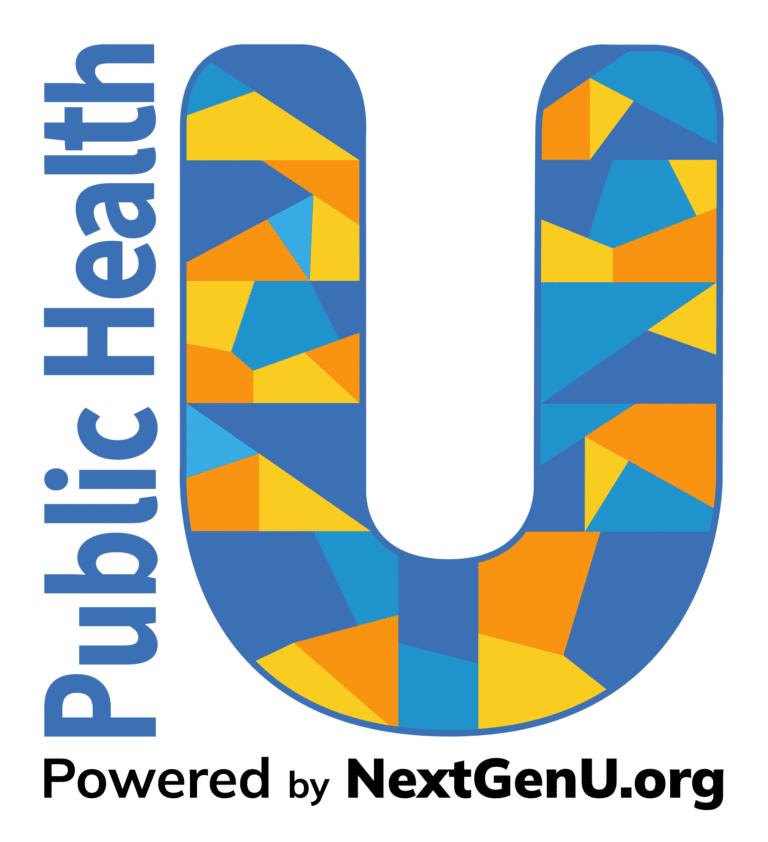Introduction
At the heart of every humanitarian crisis, whether a natural disaster, armed conflict, or public health emergency, there’s always a need for strong and coordinated responses prioritizing human well-being. In the wake of emergencies, it’s not only shelter and food that save lives; it’s access to clean water, disease prevention strategies, mental health support, maternal care, and outbreak management. This is why Humanitarian action and public health are inextricably linked. Public Health U recognizes this link and is proud to introduce a timely and important opportunity: a free, accredited training program developed by our sister initiative, Humanitarian U.

The Vital Role of Public Health Workers in Humanitarian Settings
According to the World Health Organization (2021), public health emergencies such as pandemics and natural disasters can severely disrupt essential health services due to overwhelmed systems, staff shortages, damaged infrastructure, and diverted resources. These disruptions can lead to increased illness, preventable deaths, and secondary crises. Maintaining core health services during such events is crucial for saving lives and for supporting broader goals like health system resilience and universal health coverage.
The United Nations Population Fund (n.d.) echoes this, noting that emergencies disproportionately affect access to essential health services, especially for women and girls, thereby heightening risks such as maternal death, gender-based violence, and inadequate reproductive care. Public health professionals play a crucial role in addressing these needs, ensuring that health systems respond not just to immediate crises but also uphold dignity, safety, and human rights.
Alarmingly, one in four children today lives in a country impacted by conflict or disaster, with more deaths occurring from preventable diseases than from violence (UNICEF, n.d.). These realities underscore the deep connection between public health and humanitarian action and highlight the urgent need for sustained, equitable public health responses in crisis settings.

The Foundations of Humanitarian Action Program
In response to this global need, Public Health U is proud to spotlight the Foundations of Humanitarian Action program—a free, accredited, and certified training for those ready to make a difference in humanitarian settings. Hosted by NextGenU.org in collaboration with Humanitarian U, this comprehensive program includes 13 online courses covering the core principles, ethical foundations, and practical skills essential for effective humanitarian work.
Whether you’re a public health student, an experienced practitioner, or simply someone passionate about emergency response and health equity, this training is designed for you. It offers public health professionals at all levels the opportunity to build capacity, deepen their understanding, and act with purpose during emergencies.
You can even get a first look at the program by starting with our course “Protecting Children in Humanitarian Crises: A First Look at Core Principles and Approaches.” To explore this course and the full program, visit https://humanitarianu.org/foundations-of-humanitarian-action/
Conclusion
Reference List
- UNICEF. (n.d.). Health emergencies. https://www.unicef.org/health/emergencies.
- United Nations Population Fund. (n.d.). Emergencies. https://www.unfpa.org/emergencies.
- World Health Organization. (2021). Maintaining essential health services: Operational guidance for the COVID-19 context interim guidance, 1 June 2020.
- (WHO/2019-nCoV/essential_health_services/2020.2) https://iris.who.int/bitstream/handle/10665/344796/9789240033337-eng.pdf?sequence=1
Reisha Narine
Author
